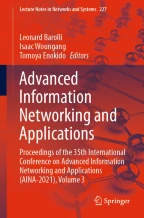Abstract
Access to charging is a prerequisite for the transition to electric mobility. There are however challenges related to charging and charging infrastructures, e.g., charging availability, grid capacity during peak hours, and the CO2 intensity of the energy mix provided. This paper suggests measures to be taken in a smart charging ecosystem to mitigate the challenges. The impact of the measures must however be evaluated. The objective of the paper is to suggest an evaluation approach, with focus on quantitative aspects. The measures of relevance, the associated indicators for the impact evaluation, and an overview of the research data needed is provided. In addition, data content examples and calculation details are described for two indicators – the charging flexibility provided by the EV users and the peak to average ratio characterising the load balancing. Scenarios to be evaluated and how simulations are used to complement the evaluation of the demonstrators are addressed.
Access this chapter
Tax calculation will be finalised at checkout
Purchases are for personal use only
Similar content being viewed by others
References
European Commission: Sustainable and Smart Mobility Strategy – putting European transport on track for the future, in COM (2020) 789, European Commission, Editor. Brussels (2020)
European Parliament: Directive on on the deployment of alternative fuels infrastructure, in DIRECTIVE 2014/94/EU, E. Parliament, Editor (2014)
European Parliament, Directive on on the energy performance of buildings, in DIRECTIVE 2010/31/EU E. Parliament, Editor (2010)
Sørensen, Å.L., et al.: Smart EV charging systems for zero emission neighbourhoods. ZEN Report No. 5 (2018)
Jiang, S., et al.: A distributed agent-based system for coordinating smart solar-powered microgrids. In: 2016 SAI Computing Conference (SAI). IEEE (2016)
Natvig, M., Jiang, S., Hallsteinsen, S.: Stakeholder motivation analysis for smart and green charging for electric mobility. In: Workshops of the International Conference on Advanced Information Networking and Applications. Springer (2020)
Lervåg, L.-E.: Evaluation of intelligent mobility services-connecting research and policy by using program theory. In: European Transport Conference 2016 Association for European Transport (AET) (2016)
FOT-Net & CARTRE: FESTA Handbook, Version 7 (2018). https://connectedautomateddriving.eu/wp-content/uploads/2019/01/FESTA-Handbook-Version-7.pdf. Accessed 19 Feb 2021
Engels, D.: Refined CIVITAS process and impact evaluation framework (2017)
Amato, A., et al.: Software agents for collaborating smart solar-powered micro-grids. In: Smart Organizations and Smart Artifacts, pp. 125–133. Springer (2014)
Acknowledgments
Authors of this paper, on behalf of GreenCharge consortium, acknowledge the European Union and the Horizon 2020 Research and Innovation Framework Programme for funding the project (grant agreement no. 769016). The authors would like to thank all project partners for technical work related to evaluation and project management.
Author information
Authors and Affiliations
Corresponding author
Editor information
Editors and Affiliations
Rights and permissions
Copyright information
© 2021 The Author(s), under exclusive license to Springer Nature Switzerland AG
About this paper
Cite this paper
Natvig, M.K., Jiang, S., Hallsteinsen, S., Venticinque, S., Enrich Sard, R. (2021). Evaluation Approach for Smart Charging Ecosystem – with Focus on Automated Data Collection and Indicator Calculations. In: Barolli, L., Woungang, I., Enokido, T. (eds) Advanced Information Networking and Applications. AINA 2021. Lecture Notes in Networks and Systems, vol 227. Springer, Cham. https://doi.org/10.1007/978-3-030-75078-7_65
Download citation
DOI: https://doi.org/10.1007/978-3-030-75078-7_65
Published:
Publisher Name: Springer, Cham
Print ISBN: 978-3-030-75077-0
Online ISBN: 978-3-030-75078-7
eBook Packages: Intelligent Technologies and RoboticsIntelligent Technologies and Robotics (R0)
